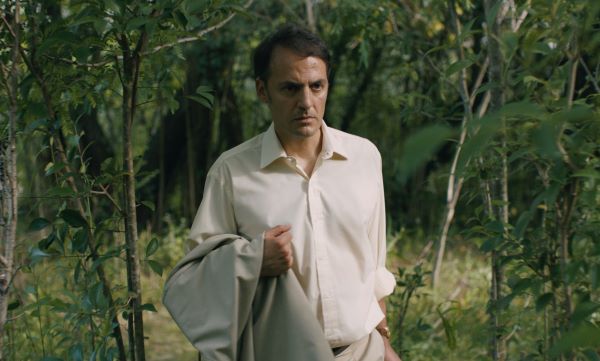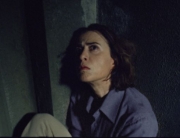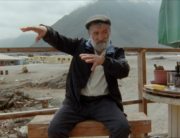
For some living under a dictatorship, life hasn’t changed much. In Azor, a film set in 1980 during Argentina’s civil-military dictatorship known as the National Organization Process, the dominant power, those in the wealthy and privileged class, remain in the background, standing still in the corner. They continue with their lives as if nothing has happened, partly because they are accomplices, either by their direct actions or silence. This is the kind of story that would be entirely different (dirtier and violent) if told from the perspective of the disappeared students, mothers who ignore what happened to them or searched for them, or revolutionaries fighting underground.
We have seen these powerful stories before in Argentinian cinema (The Official Story, Night of the Pencils, among others). Director Andreas Fontana—in his feature-length debut—chooses a different focus: the world of multimillion transactions taking place in villas and private gardens. This approach, focused on the rich during a military regime, seems cold, detached, and cynical to a certain degree, but the results are discretely chilling.
In another intelligent choice, this privileged world is explored from the perspective of a submissive and foreign observer. The Swiss banker Yvan De Wiel (Fabrizio Rongione) travels from Geneva to Buenos Aires in the company of his wife, Inés (Stéphanie Cléau), to pay formal visits and comfort and remind his clients that nothing has compromised their money abroad, given that the complicated political and social climate is unpredictable these days money-wise. His name and lineage make him the trustworthy front for a renowned and venerable private bank. However, Yvan’s presence here has been forced by the unexplained disappearance of his associate, René Keys.
With every new encounter, Keys’s name pops up casually in cryptic conversations where some clients praise him for being a good friend while offer harsh critiques on his past behavior, implying that he made unforgivable mistakes. None of the rumors about him are clear and transparent, and some imply something implicit. Yvan knows nothing (like the audience), but he masks his confusion accordingly, acting as the reliable businessman who must offer the best advice. The fate of Keys becomes a central mystery that propels suspense and interest throughout the movie. A warning: it’s less about the resolution and more about how this never-seen character, who remains a shadow against which Yvan is constantly measured by others and himself.
The film is divided into five chapters with their respective titles announcing themselves onscreen, as if we were turning pages on a sophisticated novel. Not defined by self-contained episodes, the narrative structure could be a mere whim or an inner joke. The screenplay was written by Fontana in collaboration with Mariano Llinás (director of the magnificent and challenging 14-hour marathon film La Flor), so the chapters might be intended as a game, an invitation to read the movie as a detective novel and not to let the clues fly away.
Likewise, the multiple languages (Spanish, French, and English) highlight the cultivated aspect of the social circles represented here and the ambivalence of the film’s title. Azor is the Spanish name of a bird of prey (a proper metaphor for a banker taking advantage of the circumstances in a country affected by social malaise), while the same word is described by Inés as a Swiss expression that serves as an admonition to remain prudent.
Thanks to prudence, Yvan doesn’t gain sympathies as easily as his former and missing colleague. At the same time, he’s the perfect candidate to succeed Keys now that times have changed in Argentina. In private conversations with Yvan, Inés reveals more involvement in her husband’s deals than everyone else suspects. The contrast between the public Inés and the Lady Macbeth she becomes behind closed doors is an intriguing detail that sadly is not explored deeper.
Throughout, the camera remains distant, providing equal attention to the people and the opulent houses they inhabit. The motley parade of characters portrays different aspects of a corrupt and seductive social class: a rancher who hates his male sons while naively waiting for his disappeared daughter to come back (she was probably a left-leaning student), a ruthless impresario with political aspirations who seems more interested in gambling than dealing with the banker, and the well-connected bishop tempting Yvan to find a new and certainly most dangerous clientele. For a man whose aspirations have been always overshadowed by comparisons to more capable men (like his father or Keys), Yvan has something to prove, which might require him to take an unexpected and terrifying path.
Azor maintains a perfect balance between the intellectually stimulating around its unsolved mysteries and its critical observation about the damages of the past that have not yet been healed.
















Leave A Comment